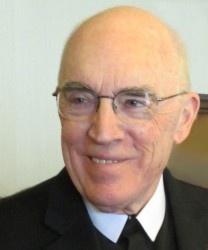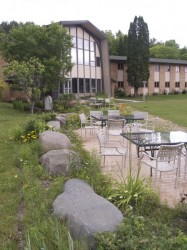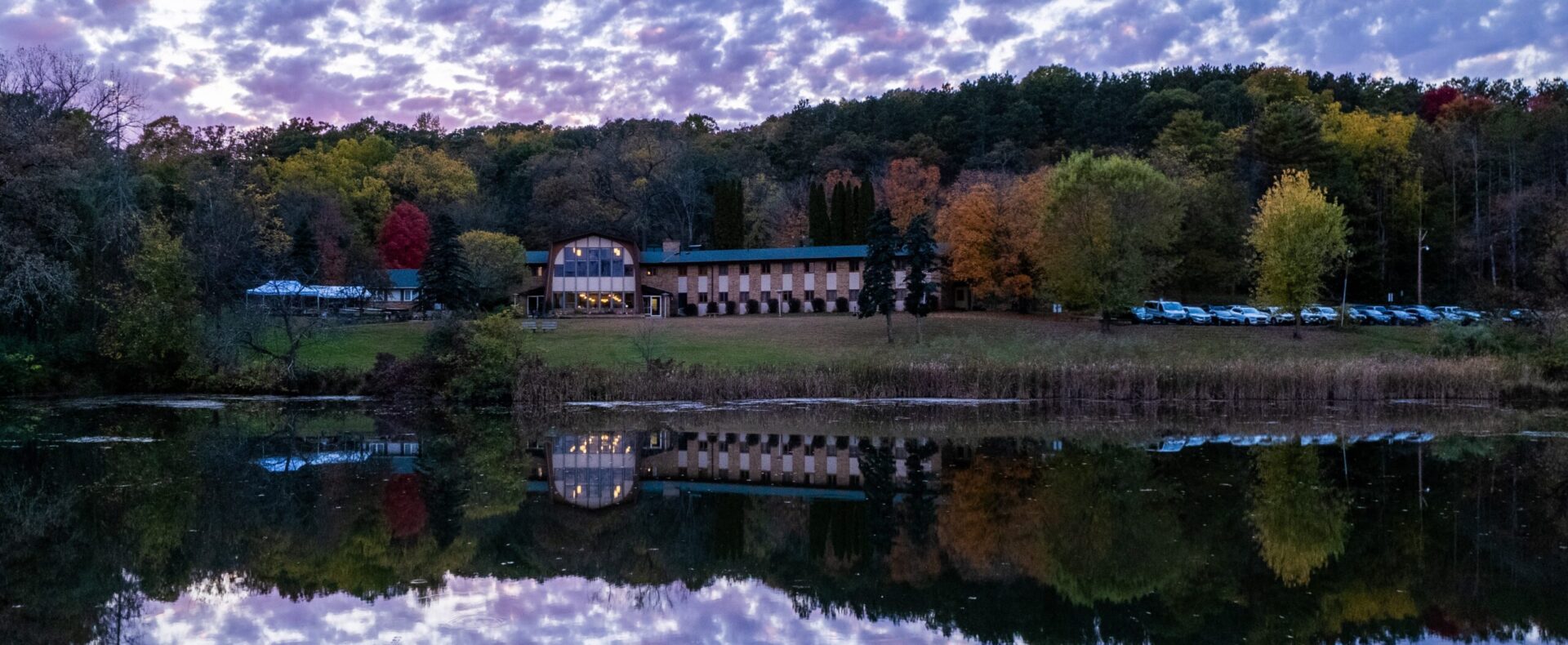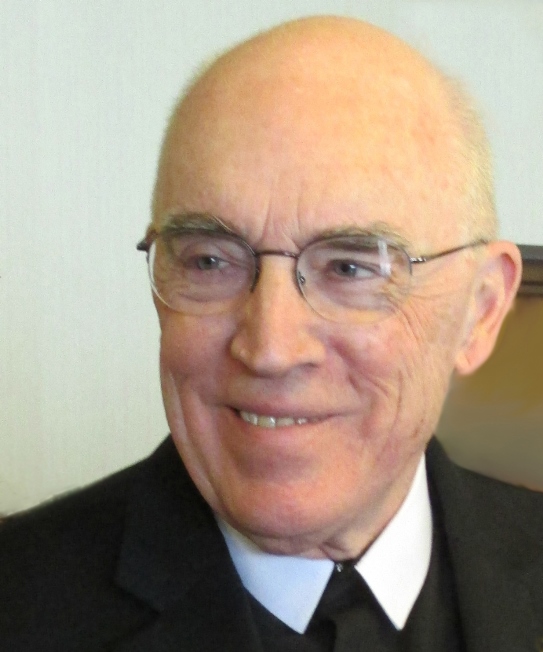
Brother Bill Clarey was a part of Dunrovin during its beginning years and continues to be involved as it reaches its 50th anniversary.
Today he serves on the Board of Directors and is the District Appointee of the Midwest District of the Christian Brothers. He was also Dunrovin’s Director from 1966-1969.
He has seen a lot of changes, and played a role in bringing some of them about.
“The first time I visited Dunrovin was in 1964 when it had just opened,” he told us recently in an interview. “I was teaching at Cretin High School, and I brought some students out to take pictures for the yearbook.”
Two years later he was named Director. It began a time of instituting new directives from the Catholic Church for Christian youth retreats.
Leading change in changing times
When it was founded in 1963, Dunrovin served Catholic high schools in the Twin Cities as a place for students to escape the city atmosphere and rigorous schedules. Spiritual retreats were a part of their academic requirements.
Prior to 1966, spiritual retreats at Dunrovin were silent. No talking at all – only silent reflection. They were managed by a three-person team which included a priest, the Director, and the religion teacher who came with the class from the visiting school.
“One of the early changes we made to the retreats was to allow discussions during mealtime,” said Brother Bill. “This came as a result of post-Vatican II discussions for youth retreats. The discussion time focused students on topics that enhanced their silent reflection time.”
The retreat experience had a profound impact on the male students. And the word began to spread when they returned home and shared their experience with friends and family.
This word-of-mouth led to another change for Dunrovin Retreat Center.
Spiritual retreats for high school girls
When Brother Bill ran Dunrovin, about 3000 students a year came for retreats. They were mostly from all-male private schools – until the word got out.
“Once the boys from Hill High School started telling their stories to the girls at Archbishop Murray High School, it wasn’t long before they wanted to come to Dunrovin for retreats too,” said Brother Bill.
In that year, close to 200 Murray girls began their own retreats at Dunrovin, even bringing along their own cook. Other schools not in the Christian Brothers network visited Dunrovin as well. Visitation Convent High School seniors, Our Lady of Peace seniors, and Regina High School seniors also came for retreats.
As Dunrovin expanded its outreach to a wider base of students, it also developed programs to prepare them for new social challenges.
Drug education and addiction recovery for teens
While it catered to the traditional spiritual needs of retreat attendees, Dunrovin also adapted to the changing times. One of those changes was the increased awareness of the use of drugs and alcohol in society.
In 1969, Patrick Butler, the founder of the Hazelden treatment center, gave Dunrovin a grant to add drug education to its youth outreach. Students heard first-hand stories on the perils of drug and alcohol abuse from recovering addicts.
“Hearing the real-world experiences of addiction and recovery had a greater impact on students for promoting a sober, holy life than reading about it in a book,” Brother Bill recalled.
Dunrovin’s support of drug education and recovery extended beyond the Retreat Center walls in Marine on St. Croix.
In the late 1960s, Brother Bill saw the need to aid the community at large. “I wrote to some of the local leaders whose sons were Dunrovin alums. I told them we needed to find a place to send students for help,” he said. With their support, they found one.
A short time later, the Brothers opened a halfway house on Summit Avenue in Saint Paul to provide a recovery program for those who needed post-treatment support.

Brother Bill’s legacy of leadership continues on today.
He is proud of the fact that current retreat houses of The Christian Brothers are “financially healthy, have good leadership, and are part of the Lasallian tradition.” This strong leadership is certainly present at Dunrovin, as current Director Jerome Meeds has maintained and run the center successfully for the past fifteen years. “All that they’re doing now, I think, is wonderful,” he said.
In its productive and meaningful first half-century, Dunrovin has aided youth as well as adults, and expanded its ministry to a variety of organizations. Currently, the Center hosts retreat weekends and serves as a serene meeting place for those wishing to escape the hectic clamor of more urban scenes.
A meeting place for renewal and healing
Besides leading youth retreats, summer camps and leadership training for high school students, Dunrovin hosts a variety of other groups seeking respite for healing. Some of these self-directed groups include health issues support groups, yoga meditation groups, addiction recovery groups, homeless transition groups, and groups that help returning military reenter civilian life.
What does Brother Bill see in the future for Dunrovin? “I don’t know what’s going to happen, but it’s great to see that they are healthy, have great leaders, and that the facilities are kept up very well.” Amen, Brother Bill.


